The Zone Of Interest & The Monsters In Our Midst
Jonathan Glazer's Oscar-nominated film deftly reflects the cultural relationship between fascism and any society it pervades.
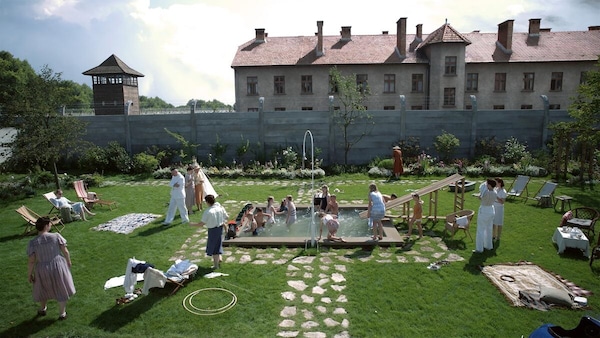
Last Updated: 11.14 AM, Mar 10, 2024
RUDOLF HÖSS (Christian Friedel) is good at his job. The German careerist works for an engineering and transportation company. He has been running its biggest factory for a few years; his bosses are impressed. Höss has some perks: His house shares a wall with the massive plant, so his commute is zero. He keeps an eye on his employees and cargo; he has strict rules in place for a well-oiled system. Some of the extra produce is even sent to his house. The trains too arrive bang at the gates of the factory. He works late nights, and has no qualms tending to his own carnal desires. The Höss family — his wife Hedwig (Sandra Hüller) and five kids — have made a home out of this house: A pretty yard and garden, a tiny pool, a nursery, a dog, tastefully decorated rooms.

The noise from the other side of the wall doesn’t bother them. They have a battalion of servants. Hedwig is proud of the place; she loves hosting other wives, children, relatives, friends. She shows off her spoils to her visiting mother. But once Höss gets promoted to greyer pastures, Hedwig begs to stay back; she refuses to leave. She can’t imagine being uprooted at this stage of their life. She curses the politics of his workplace; “ask the CEO directly,” she implores him. But a transfer is imminent. A long-distance arrangement ensues. The man agrees to stay in modest quarters in another country so that his family can continue to live in peace and comfort. Rudolf Höss cares. His sacrifice reaps dividends: He is soon put in charge of a huge project that’s going to be named after him.
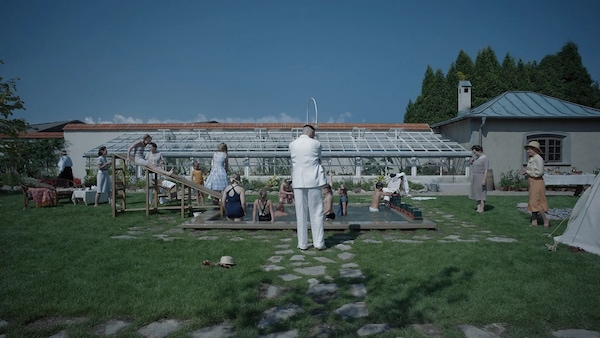
This is the story of Jonathan Glazer’s The Zone of Interest. This is precisely what we see: A dry, observant and low-profile portrait of a well-to-do household in a transitory phase. There’s a war happening, so Höss’ managerial acumen is crucial to the economy. The nation needs him. He’s created a little paradise for his family, while he puts in the hard yards. The film captures him in a tense moment — unable to prevent a transfer, wondering how and when to tell his wife, pondering on whether his professional success is worth personal displacement. Hedwig is strong-willed, too, and their argument by a river makes for one of the film’s best scenes. They may sleep in separate beds, but they’re still very much domestic companions — and, often, best friends — upholding the dream life.
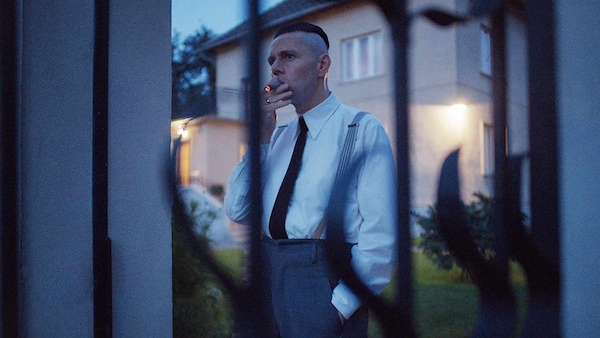
Now for some specificity. It’s not so important, but the backdrop goes thus. The year is 1943. Rudolf Höss is the Nazi commandant of the Auschwitz concentration camp in Poland. Beyond their wall is the immaculately engineered hellhole for Jewish prisoners and slaves. The German family is oblivious to the sounds of their agony: bone-chilling screams, gunshots, packed trains, panicked separations, brutal burials, the whir of gas chambers. Or the sights and smells of a genocide: the smoke from train chimneys and crematoriums, the stench of burning corpses, the fiery glow of the night sky. The Höss children play with gold-plated teeth in their beds. Hedwig casually claims the leftover clothes of murdered inmates. Rudolf’s blood-stained boots are washed every evening. It’s just everyday life. When he is transferred to Oranienberg in Berlin, SS Himmler recommends his name to lead the mass extermination of Hungarian Jews. Höss is thrilled. The Führer knows of him. He was good at his job. Now, he is better.
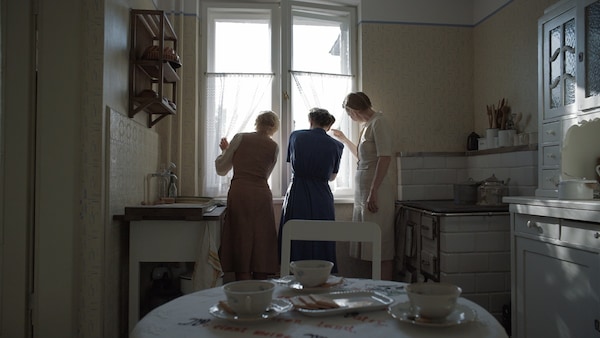
Most of the film is punctuated with the low, distinct din of suffering and death. Everything can be heard, if not seen. This dissonance between tranquil imagery (of the oppressors) and grisly soundscape (of the oppressed) — between the perpetrators’ casual perspective and the victims’ deafening silence — is unsettling to see. But it is no Holocaust gimmick. It very much reflects the cultural relationship between fascism and any society it pervades. One of the early stages is the average citizen’s complicity — evident in an intellectual insistence to separate the ‘art’ from the ‘artist,’ or a dictatorship from the crimes they commit. The focus starts to shift to efficiency and professional excellence, reducing the horrors they unleash to a corporate performance that deserves merit.
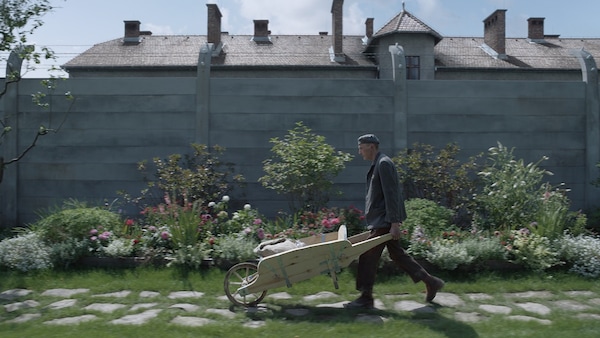
Even as we speak, the symptoms are everywhere: Film critics praising propaganda movies for “succeeding in what it sets out to do”; producers and news anchors internalising the far-right ideals of an establishment to absolve themselves of culpability and guilt; influencers and podcasters and entire nations turning a blind eye to ethnic cleansing and opposition arrests; disgruntled actors and directors jumping onto the government bandwagon to slingshot their own careers; Indians and Russians and North Koreans going about their lives quietly while dissenters disappear.
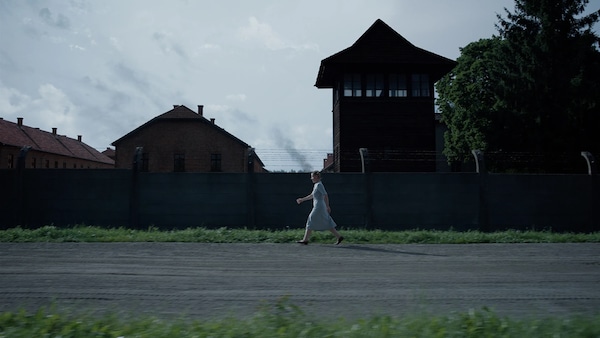
That’s how fascism is normalised. That’s how fear desensitises the majority and its relationship with the world around them. That’s how death becomes due procedure. Glazer’s deadpan film-making almost dares us to empathise with Höss by divorcing him from his deeds. It taunts us — like a parody of a Taika Waititi parody — for being able to isolate execution from intent, craft from politics, flesh from blood. It’s an unnerving and effective ‘aesthetic,’ as if to ask: When cruelty becomes legislature, what does happiness look like? When carnage becomes the law, what does success feel like?
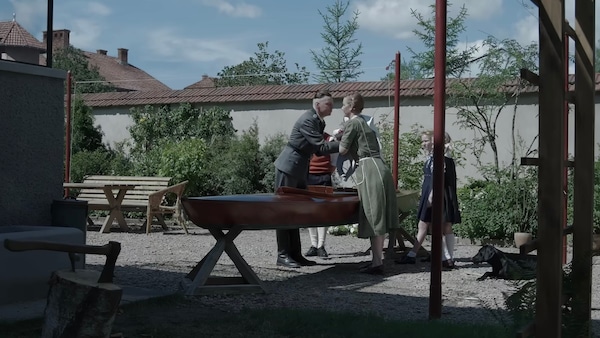
The little stylistic touches go a long way. For instance, the life of a Polish teenager hiding apples for the prisoners is depicted in photographic negatives. The implication is that her story is the one that history will capture, collect and tell for decades — but the significance of her empathy is yet to attain full colour. Her heroism is yet to develop into a complete image. The audacious ending of the film — where the future gatecrashes the past — delivers a similar message. Höss realises that he might have been the backdrop all along; and that his bureaucratic talents pale in comparison to the administrative — but victim-centric — remembrance of the Holocaust. It’s a climax open to interpretation, but regardless of how one chooses to read it, the German officer is yanked down from his office ladder.
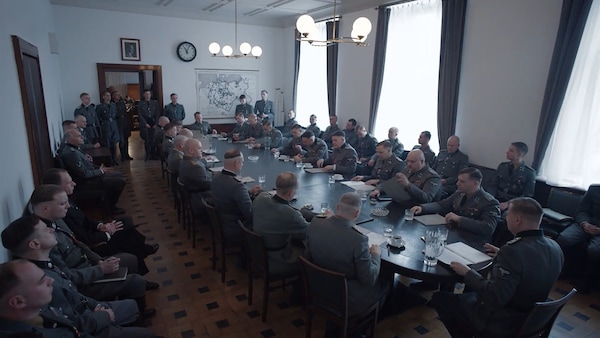
There’s also a bitter irony about The Zone of Interest, given the current genocide of Israel’s doing. If anything, the film seems to be aware that it’s a prelude to several vicious cycles of revenge parading as justice; of bigotry masquerading as balance. You can almost touch the origin story of modern-day zionism, especially in the way every scene relegates Jewish agony to the fringes of a racial superiority movement. As a result, the events of the last few months — where mass murder is built on the exploited traumas of the Holocaust — feel like an ongoing film, in which The Zone of Interest is the definitive flashback. Apart from his own erasure from the curated halls of history, this is perhaps what Rudolf Höss sees — and retches to — in the closing moments. Perhaps he sees an Israeli counterpart who is doing a finer job than he is. Perhaps he sees a Jewish wife smiling at brutal images of Gaza on her television screen. Perhaps he sees the Islamophobic media narrative of collateral damage. Or perhaps he just realises that everyone erroneously calls the Monster by the name of the scientist that created it.
The views expressed in this column are those of the author and do not necessarily reflect the official policy or position of OTTplay. The author is solely responsible for any claims arising out of the content of this column.
